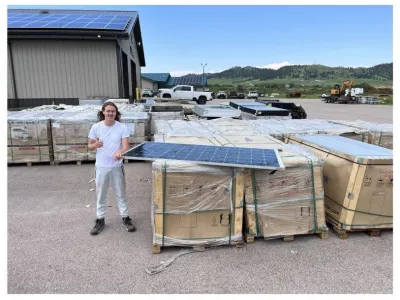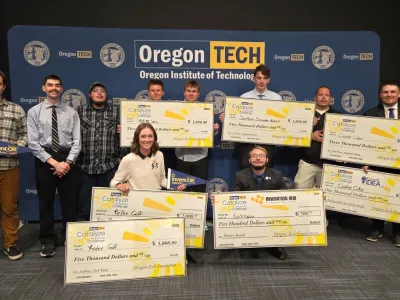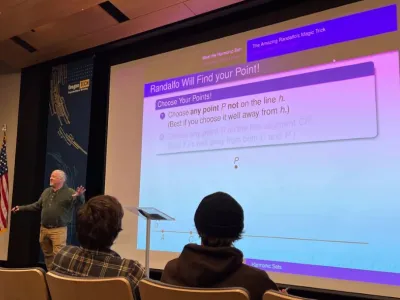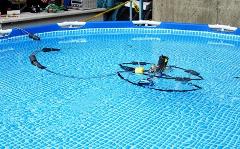
The team has a passion for implementing intelligent unmanned system and robotics including marine, underwater, and submersible robots. Club members and senior project students make up the team with over 20 students from the College of Engineering including Mechanical Engineering, Manufacturing Engineering Technology, and Manufacturing Engineering, Computer/Software/Embedded Systems, Electrical Engineering, Renewable Energy Engineering students and a few College of Health and Applied Sciences students. Student leaders for the project included Joshua Stephens, Daniel Curthoys, Omar Ricalday-Gutierres, Kai Hattan, Jack Markee, Brandon Cooley, Harry Gieringer, and Yoshua Gombo, the latter who is an alumnus and helped on evenings after full-time working at Jeld-Wen. The team also has sub-teams (Design, Sensor, Software) to work on specific details, while others concentrate on fundraising. The team’s advisor, Dongbin (Don) Lee, Assistant Professor for Mechanical and Manufacturing Engineering Technology at Oregon Tech, also played a large role in the project, bringing years of experience in robotics, mechatronics, instrumentation, and electrically-based systems to the team.
Throughout the year, the OTUS team planned, built, programmed, and tested their RoboSub to prepare for competition, which is sponsored by the Office of Naval Research and the AUVSI Foundation, a non-profit dedicated to advancing the robotics community. Forty-six university teams from around the world were challenged to design, build and race submarines through a complex obstacle course, generate a technical paper about their submarine, create a video, build a website to track progress, and give a presentation to a panel of judges.
Professor Lee was impressed by the passion, enthusiasm, and contributions that the team members showed throughout the project. Students created their RoboSub with limited resources, restricted time availability between school work and jobs, and an overall difficult competition that challenged them in their first year.
“The project requires multidisciplinary understanding and interdisciplinary skills and advanced engineering technologies,” said Professor Lee. “The RoboSub project is the culmination of real-world engineering, requiring specialized techniques to solve relevant, practical engineering problems. It is kind of like building an autonomous car, missile, or building a small-scale rocket (like falcon9 in SpaceX).”
While the team ultimately was among about half of the participants who did not pass the qualifying test, the experience helped to prepare them for competitions in upcoming years. “Oregon Tech’s students have really worked well as a team and made progress in applying their engineering skills,” said Lee. “Without their efforts and dedication, their participation in the competition would not have happened.”
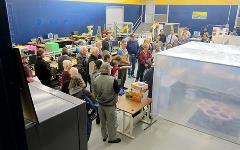
The group’s goal for next year is to extend their capability to UAV Competition as well as MATE or SeaPerch program. They also plan to do more outreach, mentoring or becoming involved with local science and tech events. They hope that by extending their activity/service to their neighbors they can help local students in regional areas, especially in Southern Oregon.
The overall winner of the competition this year was California Institute of Technology. Other participating universities included Cornell University, Harbin Engineering University, Duke University, Embry-Riddle Aeronautical University, and Georgia Institute of Technology, along with other U.S. and nine international teams.
Additional support for the RoboSub project was also provided by Dr. Erin Foley, Vice President of Student Affairs; Dr. Hallie Neupert, Dean of College of Engineering; and Dr. Jeffrey Hayen, Chairman of MMET Department. Support was also given by the Oregon Tech Foundation and Klamath Falls Kiwanis Club. To learn more about the competition visit www.auvsifoundation.org/competition/robosub or the OTUS team website at http://auvsioit.wixsite.com/otus, https://twitter.com/OTUS_RoboSub.







